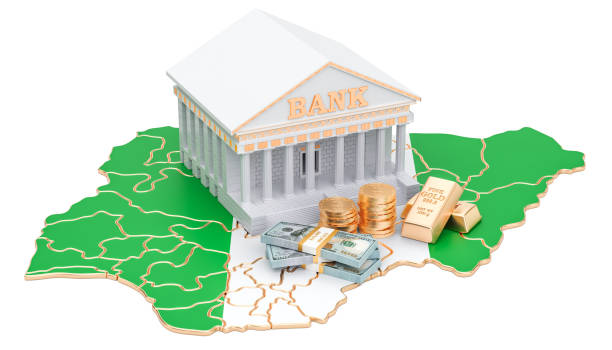Former deputy governor of the Central Bank of Nigeria, Prof. Kingsley Moghalu, has called on Nigeria’s political leaders to cut cost of governance not going to borrow more funds.
He stated this in reaction to the current move by the Federal Government to secure $1.5 billion loan from World Bank for budget support.
Join our WhatsApp ChannelThe Minister of Finance and Coordinating minister of Economy, Mr Wale Edun, made this known on Saturday, during the Nigerian delegation briefing on the sideline of the International Monetary Fund/ World Bank meeting in Marrakech, Morocco.
This is even as the government had a few months ago, said it would do less borrowing and focus more on domestic resource mobilisation to fund the budget, economic growth and development.
However, Mr Edun said the $1.5 billion World Bank loan would be coming with zero interest rate.
Nigeria is currently battling with about N87 trillion debt, which the International Monetary Fund said was “manageable,” but noted that the interest payment was high for the country.
READ ALSO: NBS Releases Latest Data On Food Prices As Nigeria’s Inflation Hits 26.72%
Reacting to the proposal to obtain budget support facility from World Bank, Prof. Moghalu, who appeared on Channels Television ‘Politics Today’ programme on Monday evening, stated that the economy is deeply distressed and borrowing more money basically for consumption would not be a good idea.
“The economy is very deeply distressed, Nigeria is practically bankrupt… poverty has increased to a very unconscionable degrees, unemployment is about 40 per cent, the naira is in distress, so, the economy is in a very bad shape,” Prof. Moghalu stated.
He said it is ridiculous that the country proposes to buy vehicles that would cost hundreds of billions of naira for members of the House of Representatives and at the same time plans to borrow $1.5 billion from World Bank. He pointed out that those managing multilateral financial institutions are there for business and won’t say no to lending money to developing nations like Nigeria that need it as it is not free money.
Moghalu emphasized that given the situation the country has found itself in which it spent about 96 per cent of its revenue to service debt in 2022, it would not be a good idea to go ahead and borrow more money without looking inwards into how to manage its resources. “Nigeria ordinarily should not be borrowing anymore, because 96 per cent of our revenue went into servicing external debt in 2022 and we have a debt stock of a $110 billion. Nigeria is debt-distressed already,” Prof. Moghalu advised.
He further said that given the reality on the ground, if the country feels there is need to borrow more, looking at the behaviour of the political leaders which shows they have no concern for the debt burden, nobody will take the country serious.
He maintained that if the lawmakers insist on buying the vehicles, they should go for locally made ones that would cost less. Doing so, he said, would show some indications that they have some concerns about the sufferings of the Nigerian masses amidst the current harsh economic realities in the country.
The economic expert emphasized that the problem is not about borrowing but for what purpose. “Ideally, we should borrow for projects that will earn a return on investment and help you to repay the borrowing. That’s not the kind of borrowing that Nigeria is doing. Certainly since 2015, we’ve had all these loans, and we are being told all kinds of things just to justify the borrowing, but the bottom line is that it just creates distress for the Nigerian economy, especially coupled with the foreign exchange crisis. You have to pay back this money in dollars even if it is zero interest.”
READ ALSO: Finance Minister Vows Responsible Budget Support As Nigeria Seeks $1.5bn World Bank Deal
He further explained that borrowing is not entirely a bad idea, but the timing is such that the leaders should look inwards into the cost of governance which nothing is being done about, rather than going for easy way out by borrowing.
He called on political leaders to think about the legacy they leave behind for posterity and consider the plight of the ordinary man and see what sacrifices they can make to help the government manage the problems of the country.
He pointed out that the current administration didn’t create the problem that brought about the economic hardship. He argued that decision of the President Tinubu-led government to remove fuel subsidy is a hard one that had to be taken given the realities on ground, but the problem was that they did not do proper planning for measures to cushion the effect.
He said handing out palliatives is not a sustainable solution but “simply a dressing on a wound that does not go to the real root cause.”
While emphasising the need for the cost of governance to come down as part of measures to curb the distress on the economy, Moghalu recommended a 50 per cent cut in the salaries of all political office holders, adding that it would make them understand the hard times the country is facing.
Victor Ezeja is a passionate journalist with six years of experience writing on economy, politics and energy. He holds a Masters degree in Mass Communication.



















Follow Us